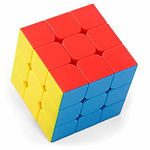John G. Cottone, PhD

~~~~~~~~~~~~~~~~~~~~~~~~~~~~~~~~~~~~~~~~~~~~~~~~~~~~~~~~~~~~~~~~~~~~~~~~~~~~~~~~~~~~~~~~~~~~~
Science & Math Videos
In this lecture, Gregory Chaitin tells the dramatic story of the recent disputes over the foundations of mathematics, starting with the problems in Cantor's theory of infinite sets and then discussing the work of Bertrand Russell, David Hilbert, Kurt Godel and Alan Turing, and finally his own work using complexity. This complexity-based analysis of the foundations of mathematics suggests that perhaps mathematics is more similar to physics and to biology than is commonly believed, and should sometimes be carried out quasi-empirically, that is, more in the spirit of an experimental science.
In this lecture, Gregory Chaitin discusses Leibniz's ideas on complexity (Discours de metaphysique, 1686), leading to modern work on program-size complexity, the halting probability and incompleteness. Leibniz's principle of sufficient reason asserts that if anything is true it is true for a reason. But the bits of the numerical value of the halting probability are mathematical truths that are true for no reason. More precisely, as he explains, they are irreducible mathematical truths, that is, true for no reason simpler than themselves.

